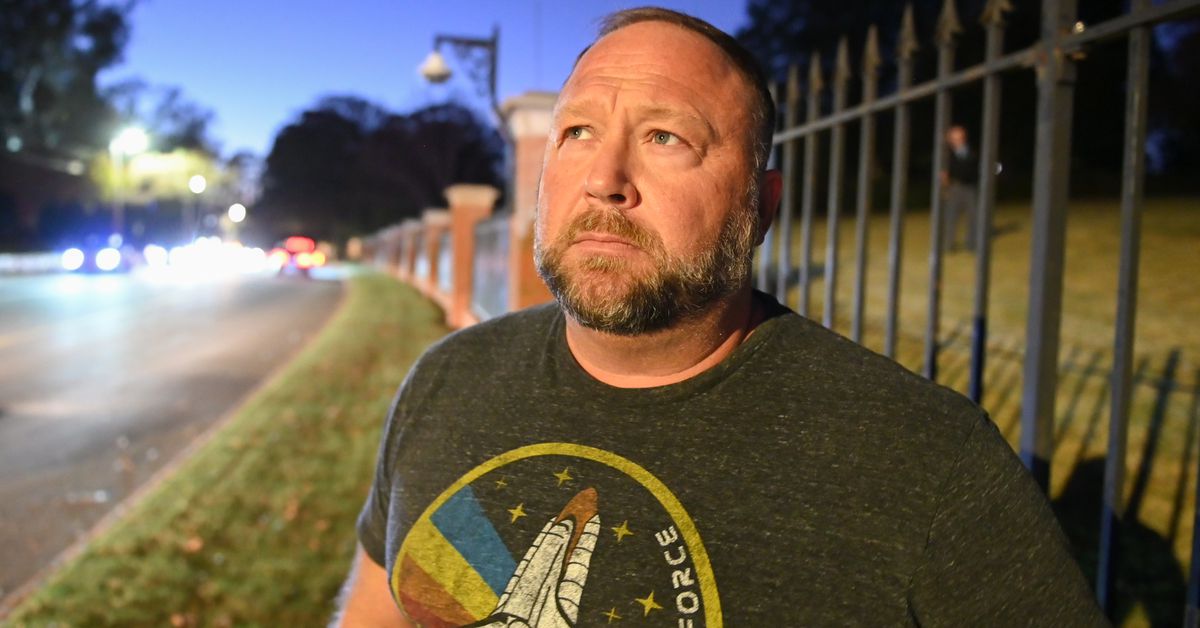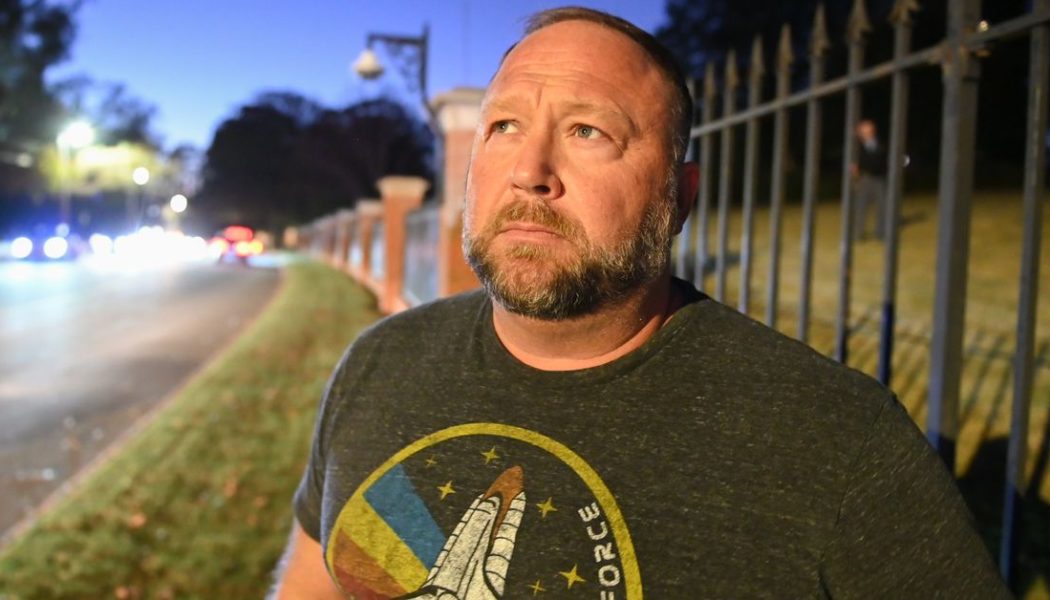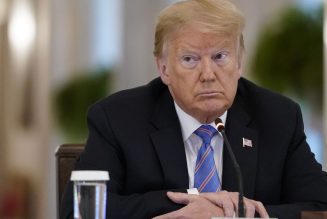
A jury has ordered conspiracy broadcaster Alex Jones to pay $4.1 million to the parents of a child killed in the 2012 Sandy Hook Elementary School shooting. The decision followed a trial that saw Jones and his counsel break courtroom protocol and — at one point — accidentally send copies of Jones’ phone records to the opposing legal team. The fine marks one of the first concrete legal consequences for Jones’ false claims that the shooting was a staged “false flag,” which led to years of harassment for parents. But it represents only a fraction of the money Jones has made in the years since.
Scarlett Lewis and Neil Heslin, whose son Jesse Lewis was one of the 20 children killed at Sandy Hook, had requested $150 million in compensation for Jones’ statements about Sandy Hook. As The New York Times notes, the jury will meet again after today’s verdict to consider whether to award further punitive damages. Jones will face a total of three trials from Sandy Hook parents; since he lost defamation cases in all three by default for refusing to produce documents to the court, the jury in each case will be deciding financial penalties.
So far, however, Jones claims to be undeterred. “We have a plan to stay on air. We can pay for these kangaroo trials,” he said on a live video broadcast between ads for health supplements and other products. (Jones was banned from major web platforms in 2018 and 2019, a fate he compared to being “technically … still on Earth, but you’re in prison” during the trial.) Jones claimed during the trial that any fine over $2 million would “sink” him, but court evidence showed that Jones’ site Infowars made $50 million a year even after being “deplatformed”.
Jones also apparently took steps to hide his money during the trial. His company Free Speech Systems (FSS) declared bankruptcy with a $54 million debt to another company that appears to be controlled by Jones, and he’s been accused of “systematically siphoning large amounts of money” out of FSS to limit his losses. The bankruptcy filing put the following two trials, which were previously scheduled for September, on hold.
The bizarre trial has highlighted both the limits of Jones’ fabulist approach to media and the difficulty of holding him accountable in court. Judge Maya Guerra Gamble expressed open frustration at Jones for lying on the stand, reminding him that “your belief that something is true does not make it true.” She also chided his (eleventh) lawyer, Andino Reynal, for letting one of Jones’s witnesses go on air with him to discuss the case. “This is not your show,” Judge Gamble told Jones at one point.
Jones also conceded during the trial that the Sandy Hook shooting was “100 percent” real, his previous statements notwithstanding. “I unintentionally took part in things that did hurt these people’s feelings,” said Jones — who aired segments suggesting, among other things, that Heslin had lied about holding his dead son in his arms. “I’m sorry for that.”
But as legal writer Ken White noted before the verdict, the ruling won’t necessarily diminish the audience for Jones’ frequently untrue claims or his ability to make money off them, even if he’s given up this particular theory. “The people who enjoyed his Sandy Hook trutherism didn’t enjoy it because it was factually convincing or coherent; they enjoyed the emotional state it conveyed because it matched theirs,” wrote White. “The plodding technicalities of law are probably inadequate to change their minds.” That makes defamation claims a cost-benefit calculation for Jones. So far, the costs include today’s $4 million verdict, some much smaller previous fines, and a reported $15 million in legal fees — and the benefits tens of millions of dollars made each year.
Even so, the trials will continue to pose a legal headache for Jones — and they’re not over yet.








